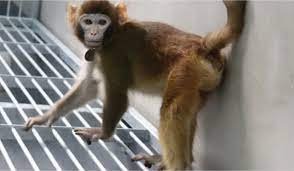Chinese researchers have achieved the cloning of the first rhesus monkey, a species crucial in medical research due to its physiological similarities to humans. This breakthrough could potentially expedite drug testing processes, as genetically identical animals yield consistent results, enhancing reliability in clinical trials.
The success of this four-year project, funded by Nokia, the German Federal Ministry of Economics and Climate Protection, and two German states, was confirmed by the researchers at the University of Chinese Academy of Sciences. The cloned rhesus monkey has maintained good health for over two years, signaling the success of the cloning procedure.
In comparison to previous attempts, where cloned rhesus monkeys either failed to survive or died shortly after birth, this achievement opens new avenues for advancing medical research and drug testing.
The cloning process involved replicating the genetic makeup of a single rhesus monkey, similar to the groundbreaking creation of Dolly the sheep in 1996. The researchers reprogrammed a cell from another monkey to generate embryos, which were then implanted into a surrogate mother.
While this achievement is celebrated for its potential benefits in medical research, concerns have been raised by animal welfare groups. The Royal Society for the Prevention of Cruelty to Animals (RSPCA) expressed apprehension, emphasizing the need to consider the welfare of the cloned animals in balance with the potential benefits to human patients.
Rhesus monkeys, native to Asia, play a crucial role in experiments related to infection and immunity due to their genetic similarity to humans. This successful cloning of a rhesus monkey marks a significant milestone in the field of genetics and medical research.



